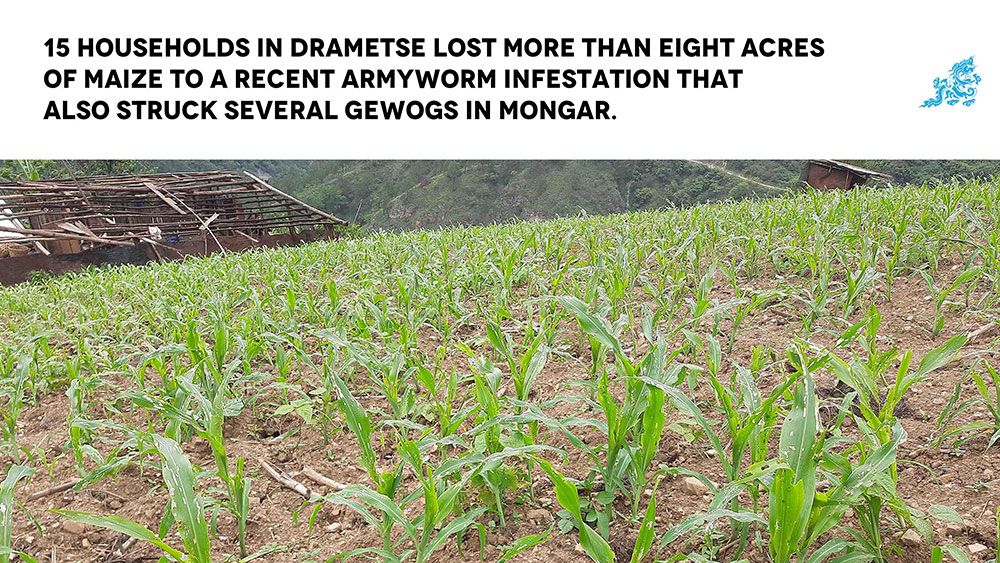Armyworm infestation in Mongar has destroyed acres of maize in several gewogs, according to farmers.
Farmers of lower Chali claims that about 50 households with the landholding of a langdo to an acre and half have been destroyed by the worm.
Maize is a major source of income for Chali farmers and they are worried that their income from selling grounded maize would be impacted.
A farmer, Pema Kinzang, who lost about an acre of maize to the worms, said it’s disheartening to see their hard toil go in vain. “We have no hope and farmers are upset but it’s a natural disaster. What can we do?”
Chali gewog’s senior agriculture extension supervisor, Lobzang Chophel, said days without rain after the sowing seeds led to the surfacing of armyworm and failures to put control measures by farmers in time led to the disaster.
He said chemicals were already supplied to the farmers, but they did not spray the pesticide when the pests began to attack their crop, due to religious sentiments, as the whole month was auspicious Saga Dawa. “We even went to distribute the pesticide door-to-door.”
Lobzang Chophel said about five households were severely affected and need resowing while crops in other fields are regrowing after the recent rainfall.
Similarly, the pest also damaged about six acres of maize fields belonging to 11 households in Kalapang village in Saling gewog. Kengkhar gewog and Gongdue gewog reported eight and four houses respectively with severe damages.
In Drametse, 15 households lost more than eight acres of the crop to the pest. The farmers sowed the seeds again.
In Mongar gewog, about 10 households in Ridaza and Hurungpam villages reported the damage. However, gewog agriculture extension supervisor,
Sangay Wangdi said timely spraying of chemical helped in bringing the situation under control.
The worm has also infested crops in Tsakaling gewog.
Dzongkhag agriculture officials said even farmers in Kalapang village did not spray the pest control measures due to religious sentiments.
They explained that the favourable weather condition for the worm is a mix of cloudy and sunny days without rain. “Continuous rain that lasts for two to three days after it starts infestation kills the worms.”
They also said lack of crop rotation practice is the other reason.
Meanwhile, in Thangrong gewog, a drought affected maize fields of 58 households recently.
Dzongkhag agriculture officials said the reports have been compiled and forwarded to the high-level disaster committee.
By Tshering Namgyal | Mongar
Edited by Tashi Dema


